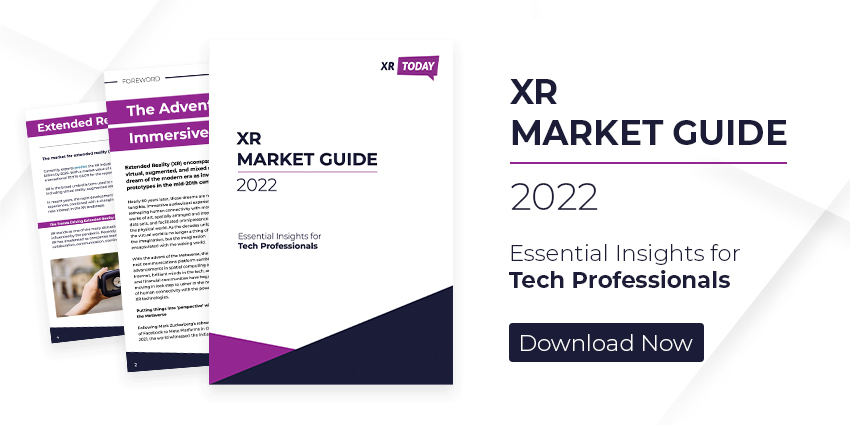The VR/XR market is hurtling toward an extraordinary $85-123 billion valuation by 2030-2032, fueled by breakthrough applications. Yet lurking beneath this explosive growth is an ecosystem of patent trolls – non-practicing entities (NPEs) that exist solely to extract licensing fees through litigation.
As XR moves from pilots to platform, the most immediate risks are no longer just technical – they’re operational, financial, and legal. If you’re using XR technologies in your business, this shadow war happening around patents could determine whether your rollout stays on track, or stalls under budget shocks and supply-chain turbulence.
When Legal Battles Disrupt Business Operations
Patent trolls represent one of the most insidious threats to successful XR rollouts. These companies don’t create products. Instead, they accumulate patent portfolios and target growing industries for maximum financial extraction, creating cascading impacts across enterprise technology stacks.
The XR industry has become their latest hunting ground. NPE litigation in deep tech sectors surged 21.6% in Q4 2024 alone, with companies like IngenioSpec LLC leading the charge. This single entity holds 72 patents and has unleashed a legal blitz against industry titans including Meta, ByteDance, HTC, Valve, Bose, LG, Samsung, and Sony, targeting the fundamental technologies that make AR/VR headsets and wireless communication systems possible.
This legal pressure creates immediate enterprise consequences. Technology vendors are diverting millions in R&D spending to legal defense, slowing product development cycles and feature releases. Supply chain disruptions emerge as manufacturers face injunction threats. Most critically, licensing costs and legal settlements inevitably flow downstream to enterprise customers through higher pricing, extended support contracts, and platform instability.
Investment Patterns Signal Broader Market Risk
The shift in investor behaviour reveals the depth of this threat to XR market maturity. Venture capitalists now prioritize IP due diligence above technical capability, fundamentally asking whether XR companies can survive litigation rather than whether their solutions drive business value.
This creates a chilling effect on innovation that directly impacts enterprise technology choice. Instead of breakthrough development, XR companies are adopting defensive strategies, conducting exhaustive freedom-to-operate analyses, and negotiating complex cross-licensing agreements.
For enterprises, this means slower innovation cycles, reduced feature velocity, and consolidation around large vendors with litigation resources. While companies like Meta and Sony can absorb millions in legal costs, promising startups developing specialized enterprise solutions face extinction under patent pressure. This market consolidation reduces competitive pricing and limits specialized solutions for vertical enterprise needs.
AI: The Unlikely IP Hero
The XR industry isn’t defenseless against this threat. A new ally has come from an unexpected source. Artificial intelligence is emerging as a powerful ally in the fight against patent trolls; offering tools that could fundamentally rebalance the playing field between innovators and litigators.
AI-driven patent analytics platforms are revolutionizing intellectual property management. These systems can analyze millions of patents in minutes, identifying potential conflicts and discovering prior art that could invalidate troll patents. What once required armies of patent attorneys and months of research can now be accomplished in days, dramatically reducing both cost and risk.
AI tools are democratizing patent intelligence previously exclusive to tech giants. Smaller specialized vendors can now access sophisticated IP analysis, improve their survival prospects and maintain competitive enterprise solution diversity.
XR Market Maturation
Patent troll activity threatens to delay enterprise XR adoption as companies adopt more cautious technology selection processes. Market consolidation around litigation-resistant vendors reduces solution diversity and increases enterprise dependence on major platform providers.
However, regulatory changes are emerging. We’re likely to see big regulatory changes by 2026-2027, including stricter USPTO patent examination standards and potential congressional action on patent troll reform, especially as the economic impact on emerging technologies becomes impossible to ignore. Enterprises that maintain strategic XR investments while implementing defensive IP strategies will be positioned to capitalize when regulatory clarity arrives.
The patent troll threat represents more than legal nuisance – it’s a fundamental risk to enterprise technology transformation timelines and XR market development. Enterprises that proactively address these risks through vendor selection, contractual protection, and AI-powered due diligence will maintain competitive advantage while the industry navigates this challenging period.







